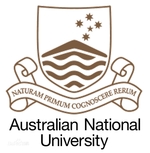“Heritage Protection: The Corporate Social Responsibility of Extractive Industries?”
“Heritage Protection: The Corporate Social Responsibility of Extractive Industries?”

“Heritage Protection: The Corporate Social Responsibility of Extractive Industries?” (with Melissa Baird). Critical Cultural Heritage Studies Symposium, Australian National University, Canberra, Australia, December 2-4, 2014. Click HERE to view the conference website.
Conference Paper Abstract: Critical heritage studies appropriately positions heritage within a wider field of global institutions, discourses, and power relations. In this vein, we draw upon ethnographic studies in Australia, Papua New Guinea, Romania and Madagascar to show how heritage claims increasingly emerge on ‘resource frontiers’ in new terrains of contestation involving local residents, state bodies, resources, extractive industries, and corporate investors. These struggles attract the attention of a new range of interlocutors including international industry associations and environmental NGOS, who attempt to locate and appeal to more general principles and universal norms to govern conduct that implicates heritage values. General industry principles of corporate social responsibility are articulated concomitantly with a wider range of international cultural rights principles as the rights and responsibilities of ‘communities’ become politicised. Global heritage institutions like the IUCN, we suggest, increasingly find themselves serving as mediators in these ‘scaled up’ struggles which promise to become more heated, precisely because of the new policy emphasis on extractive industry by internationally organized Indigenous Peoples. Nonetheless, we will argue that if the principles of indigenous rights provide the most capacious set of protections, the entire human rights tradition is being ‘mined’ for new political resources for ‘communities’ with culturalised attachments to lands transformed by extractivist enterprise. Ultimately we argue that we need to move beyond critiques which focus primarily upon the ways in which heritage does or does not faithfully represent actual histories and culture as it is experienced, or communities as they see themselves, to understand the work that heritage is doing in conditions of neoliberal governmentality for diverse agents seeking multiple audiences in performative utterances in various policy venues at multiple scales. We must pay more attention to the ‘publics’ that heritage rallies, the accounting norms through which it may become an offset, and the industry groups and NGOs for whom its citation and site location provides places for new investment, while critically exploring the assemblages of actors, institutions, rhetorical resources, and legitimating logics of these new, highly politicised heritage landscapes. The presentation is based on a 25 page manuscript forthcoming in a Companion Guide to be published by Wiley Blackwell.
Critical Cultural Heritage Studies Symposium (Second Biannual Conference)
Australian National University, Canberra, Australia
December 2, 2014